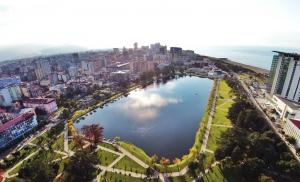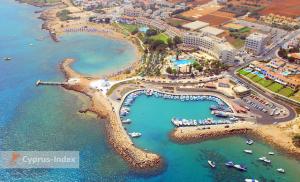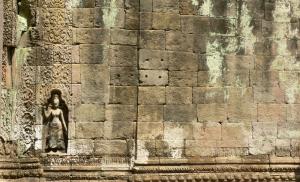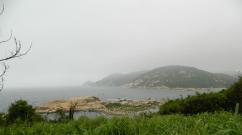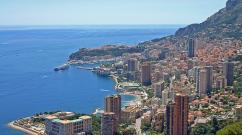Life in Thailand. Description of the country
If you are going on holiday to Thailand, it is better to study the features, traditions and rules of this country in advance. Thanks to this, you will protect yourself from some ridiculous situations and learn how the locals live and what their customs are. Of course, it won’t be possible to talk about all the features in one article, but I want to present to your attention the 25 most interesting facts about Thailand.
1. Thais are very religious people and they are sensitive to their religion. Buddhism mainly flourishes here. No matter what conditions the Thai himself lives in, even in an old hut, there is always a beautiful house of spirits next to his house.
2. Thailand has a completely different calendar. When we celebrated 2015, Thais welcomed 2,558.
3. The King of Thailand has American citizenship.
4. King Bhumibol Adulyadej of Thailand has been in power since 1946 and is included in the Guinness Book of Records for the longest reign.
5. Thais have great respect for their king and all royal family. In cinemas, before the start of the show, the national anthem is always played, and the king is shown on the screen, at which time all Thais stand up and listen to him silently. All students start their day in the same way; the anthem is played in schools and universities. In cities, posters with the image of the king hang on the streets. Under no circumstances say anything bad about the king, this will be considered an insult to His Majesty. Do not throw money on the floor, do not crush it or get it dirty. The thing is that the king is depicted on banknotes. For insulting the king, you can get a fine or even go to prison.
6. Thais are relaxed and slow people; they are not in a hurry. The Thai people live by the principle: “if I don’t have time in this life, I will do it in the next.” For them, the main thing is the joy of the moment, they do not pursue material wealth, they do not see the need for it.
7. Thais do not complain or whine, unlike many Russian people, where this is considered normal. They believe that everything that comes into their life they deserve and the cause of problems should be looked for in themselves, and not to blame others. In this I share their views. After all, we ourselves attract events into our lives with our thoughts, and this has been proven more than once. So, think positively and you will be happy!
8. In Thailand, in all public institutions, buses, trains, air conditioners operate at full capacity. When you enter a store, the cold air immediately blows on you and you want to dress warmly.
9. The cult of food is thriving in Thailand. Here at every step there is either a cafe, or a restaurant, or makashnitsa. It seems that Thais eat all the time. However, they very rarely cook at home.
10. In street cafes everyone eats, regardless of social status. In the most shabby cafe, both ordinary people and rich people who drive up to this place in expensive cars dine. In Thailand there is no such division that the rich visit some places and the poor visit others. And no matter whether you are poor or rich, you will be treated respectfully and equally.
11. In Thailand, the wiring is at the top, hanging large number wires and this is the first thing that catches your eye when you first visit this country. This does not at all beautify the city. It looks just like in the picture.
12. In Thailand, you drive on the left. Road rules are often ignored here, so you need to be very careful on the road.
13. Foreigners in Thailand are called “farangs” and are often looked at as a bag of money.
14. There are practically no sidewalks in Thailand; Thais prefer to ride motorbikes and cars rather than walk.
15. In Thailand, you can rent a motorbike or car without having a driver’s license.
16. No matter how poor a Thai is, he will always have enough expensive car, since in Thailand there are very favorable car loans.
18. If you see a beautiful tall Thai woman in Thailand, do not forget to check her gender, as most likely she is a man.
19. Before entering many pharmacies, massage parlors, hairdressers and other establishments in Thailand, it is customary to take off your shoes.
20. You cannot touch the heads of Thai people, including children, this is considered disrespectful. Thais believe that it is in the head that the spirit or soul is located and cannot be touched.
21. Thais smile much more often, so it’s not for nothing that I call Thailand “The Land of Smiles.”
23. Men in Thailand are prohibited from showing their naked torsos in public places.
24. It is impossible to meet a drunk and noisy Thai on the street. They rarely drink, but when they do, they are quiet.
25. In Thailand it is not customary to swear or raise your voice. In Thailand, swearing is perceived as a dog barking. But it is indecent for a person to stoop to the level of an animal.
When going on vacation to Thailand, it is better to know in advance the current prohibitions and rules of conduct, so as not to overshadow your vacation with expensive fines and imprisonment. There is absolutely no reason to worry or cancel your trip, especially after reading this article, which (I really hope) will save you and your wallet.
Bans in Thailand in 2017 – 2018
Many of you have already heard that over the past couple of months there have been high-profile cases in Thailand where tourists were detained for one reason or another. I mean the situation with smoking electronic cigarettes, feeding fish in a protected area or tourists with walkie-talkies in Pattaya. Let's try to figure out what you can and cannot do in Thailand, what you can import and export to and from Thailand, and what you cannot. What rules of behavior should be followed and what the consequences are for ignoring the laws of the Kingdom of Smiles.
Smoking ban on the beach in Thailand
Just recently, on November 1, 2017, a law prohibiting smoking on some beaches came into force.
While the list of beaches where smoking is prohibited from November 1, 2017 has been published, here it is:
– Rayong – Mae Pim Beach
– Chanthaburi – Laem Sing Beach
– Bang Saen near Pattaya
– Jomtien beaches and those closest to them in Pattaya
– Tam Phang Beach on Koh Si Chang island
– Chaam Beach in Phetchburi
– Patong Beach in Phuket
– Bo Put Beach in Surat Thani
– Sai Ri Beach in Chumpon
– Chalatas Beach in Songkhla
– Ta Wa Sukri Beach in Pattani
– Beaches of Koh Kai, Koh Nai islands on Koh Yao island in Panga
– Phra-ae and Klong Dao beaches on Lanta island in Krabi
The list will be constantly updated, so I would not smoke on those beaches that are not currently on the list. In the future, they plan to ban smoking on beaches throughout Thailand.
Why is this happening? It seems like a fight for nature and reducing cigarette butts on the beach. According to official representatives, tourists and residents must put out their cigarette butts before entering the beach.
What is the punishment?
Fine of 100,000 baht (185,000 rubles) or a year of imprisonment.
It seems to me that it would be a good idea to first put up trash cans and designate areas for smoking, and as a person who smokes, such a law certainly does not make me happy. For example, I have a pocket ashtray and I haven’t buried a single cigarette butt in my entire life on the beach. But I constantly see how some people leave mountains of garbage on the beach in the form of scraps, plastic and bottles. Why not start with a ban on food on the beach??
We will see whether this law will be respected or not. It’s too early to say anything else, since for the first couple of months they promise not to fine you, but simply to warn you.
Ban on smoking e-cigarettes in Thailand

A ban on the carrying, use, storage, and sale of electronic cigarettes and components was introduced and has been in effect since 2014.
In reality, when you come to Thailand, you will often see vapers of both European and Thai nationality smoking.
A resonant story with vaping occurred in September 2017 with tourists from Tula, who were arrested by police in Pattaya because the girl was taking out an electronic cigarette, and the guy was found to have another one in his pocket during a search.
As a result, they were detained for a day and a half and released on bail.
The guys had to spend about 300,000 rubles on legal services.
The situation with vapes in Thailand is very strange. Electronic cigarettes are freely sold at night markets, as are e-liquids and other components. I see people smoking vapes all the time and everywhere, sometimes even indoors. Thais often vape and are also open about it, so what's going on?
I assume that this is a demonstrative flogging, which has nothing to do with Russia, these tourists were simply unlucky, and others might have been unlucky.
But I advise you not to import, smoke, or purchase electronic cigarettes, hookahs and other similar things into Thailand; this will result in a fine and imprisonment for up to 5 years. Sometimes both.
Manufacturers of electronic cigarettes face a 10-year sentence.
The fine for smoking electronic cigarettes in Thailand is 1,000,000 baht.
Yes, there is no error. Exactly 1 million 800,000 rubles in conversion.
Ban on quadcopters in Thailand
Since October, every owner of a quadcopter and other unmanned aerial vehicles is required to register their gadget with the Ministry of Broadcasting of Thailand (NBTC).
The fine for this violation is 40,000 baht (75,000 rubles) or 1 year in prison.
Same strange story was with walkie-talkies when Russian guys were caught and imprisoned for using walkie-talkies. It turns out this is prohibited.
Bans on feeding fish in nature reserves in Thailand

At the beginning of 2017, a completely crazy story happened with a Russian woman, which was broadcast on all Russian channels.
A woman on a boat excursion in Phuket fed fish near the island of Racha Yai, and was arrested there by employees of the Department of Marine and Environmental Resources.
Naturally, 53-year-old Olga Smirnova was an ordinary tourist from Russia and, in order not to sit and wait for a verdict in prison, she paid a fine of 100,000 baht (185,000 rubles) and was released on bail.
For feeding exotic fish in protected areas faces a fine of 100,000 baht and a year in prison.
What to do to avoid getting into such a situation? The answer is obvious - do not feed the fish.
Although the story is certainly more than strange, usually boat trips are carried out exclusively with the permission and payment of the military from the Marine Department, who in turn must notify the organizers of all the rules of conduct.
What can and cannot be imported into Thailand?
I already wrote briefly about this, but I’ll repeat it for those who missed it.
You can bring no more than 1 liter of strong alcohol into the territory of Thailand (not calculated for children, they cannot be transported)
And also 200 cigarettes, that is, 1 block. 
Fine for cigarettes – 5,000 baht per block and confiscation (about 10,000 rubles)
For exceeding the alcohol limit - from 1000 baht per liter and confiscation.
I foresee comments like: we brought five hundred thousand liters and twenty blocks and we got nothing for it.
You're just lucky. I twice witnessed how they specifically looked through the cameras, caught me, and took me to jail to pay a fine.
Food and drinks, medicines, you can import all this, even if you bring lard, no one will take it away from you during quarantine.
If the medications are serious, it is better to have a prescription, receipt and annotation for them.
The list of prohibited drugs in Thailand differs from the Russian one. But more often you can bring prohibited goods to Russia from Thailand than vice versa.
Don’t even worry about any paracetamol, dietary supplements, pentalgin, etc.
Rules of conduct in Thailand for tourists

To avoid getting into trouble and becoming a victim of an unpleasant situation, I strongly recommend listening to the advice described in this article. All of them are taken from many years of experience living here.
Thailand is a very conservative country, despite the abundance of katoeys and tom boys.
Katoi - they are ladyboys, they are transvestites and people with an uncertain orientation here do not confuse, surprise or shock anyone.
They work in stores, banks, act in films and on television. No one condemns their lifestyle and society’s tolerance towards them is 100%.
Tom boys are lesbians. Women dressed and cut like men. The same thing as with katoys. Nobody singles them out or oppresses them.
If you walk half naked in Thailand, swim or sunbathe without a bra or panties, then not only will they not understand you, but the police may well be called.
There are no nudist beaches in Thailand, they are prohibited. Despite the fact that Thailand is a Buddhist country, not a Muslim one.
That is, there is no need to wear a hijab or swim in leggings. A regular swimsuit or swimming trunks for men is sufficient.
I’ll add a remark that sometimes it’s very embarrassing for our compatriots, especially in winter, during the “hot season,” when half-naked men and women in thongs wander around large supermarkets so that their eyes bleed when they look at them. How? Where? For what? All these questions are still unanswered.
Sex on the beach in Thailand
This also happened and appeared in the news. If you don't want your 15 minutes of fame and a couple of nights in jail, you shouldn't have sex on the beach or in crowded places. In general, where you can be found.
They will be caught, imprisoned, convicted.
Drunk driving in Thailand and driving without a license
For some reason, there is an opinion that in Thailand you can do anything, including drinking and driving, and nothing will happen for it.
Not really. Yes, Thailand has more relaxed laws regarding violations for car and bike drivers.
The permissible ppm threshold is 0.5. In Russia it seems to have been completely abolished, since previously it was 0.35.
In general, in Thailand, roughly speaking, you can drink beer while driving (but you shouldn’t).
For those who don’t know, the greater a person’s mass, the more he can drink and not get fined.
Fines for violating traffic rules in Thailand

Fines in Thailand are very modest compared to Russian ones. And if you consider that you can always reach an agreement on the spot and you won’t be deprived of your rights, you won’t have to pay for a parking fine – absolutely divine.
Riding without a helmet – 400 baht
Without a license – 400 baht
Running a red light – 1000 baht
Turning around in a prohibited place – 400 baht
Meeting – 400 baht
Non-payment of transport tax – 500 baht
and so on. To make it very simple - 500 baht usually solves all issues on the spot.
If not, take a fine and pay it at the branch at the central festival on Beach Road.
For those who are planning to ride a bike without a license in Thailand, my advice is to buy a normal, darkened helmet. Broken-down rental helmets are the brightest neon sign for traffic cops - “I have no rights.”
Well, of course it’s better to get a license. There is no discrimination, I’m telling you as a person who was in Gai yesterday and changed my license. There are a million Thais, because they, like us, are subject to pressure for driving without a license.
Drugs in Thailand – what are the dangers?
As elsewhere in Asia, drug offenses in Thailand carry life sentences or the death penalty. No exceptions are made for tourists or local residents.
Beware of buying even soft drugs while on holiday in Thailand, because such a story can end very badly. Those who sell are the ones who hand you over to the police.
What do tourists need to know in Thailand?

When coming to a foreign country, you should respect its laws, especially those related to spirituality.
Visiting Buddhist temple, do not wear revealing clothes, short shorts, or T-shirts.
Women's clothing should cover their knees and shoulders, and their shoes should be closed. Shoes must be removed at the entrance.
Let me give you an example.
In August, a Russian woman was convicted of refusing to take off her shoes before entering a temple. Woman vacationing in Myanmar, visiting temple complex Bagan refused to take off her shoes and started making a fuss, demanding to show her where this law was written.
She was taken into custody and given a fine of $367 or a month in jail.
The arrested woman refused to pay the fine and chose prison. She was then charged with immigration violations and was given another 6 months in prison.
Regarding images and statues of Buddha, I will also add that it is prohibited to export images, paintings, figurines, and other things in the form of Buddha and his images.
When you drive to Suvarnabhumi Airport, pay attention to the huge poster on the road that says - Buddha image is not for sale!
Attitudes towards the monarchy in Thailand

The attitude towards the king and the royal family in Thailand is respectful and there are even laws according to which it is forbidden to publish information discrediting the king, as this risks imprisonment.
Prohibited: saying things that discredit the king and the royal family. Trample the money of Thailand, commit acts of vandalism associated with the king, his image, etc.
Are they jailed for this? Yes, yes. The cases are known.
Conclusions regarding bans in Thailand
I hope I didn’t intimidate you too much and my stories won’t make you change your mind about traveling to Thailand. In this article I have collected the most resonant and well-known cases, so you shouldn’t think that everyone here is put in prison every day.
How to save money on a hotel or apartment on vacation?
I'm looking on the Rumguru website. It contains absolutely all discounts on hotels and apartments from 30 booking systems, including booking. I often find very profitable options, I can save from 30 to 80%
How to save on insurance?
Insurance abroad is required. Any appointment is very expensive and the only way to avoid paying out of pocket is to choose an insurance policy in advance. We have been registering on the website for many years, which give best prices insurance and selection along with registration takes only a couple of minutes.
Just remember the information I provided you and don't get into trouble. Vacationing in Thailand can be easy, fun and without problems.
This is what I wish for you from the bottom of my heart!
What surprised me in Thailand
5 (100%) 4 votesEach country has its own history, culture, customs, traditions and even climate, which have a strong impact on the mentality of the people living in it.
In the kingdom of Thailand, the sun shines all year round, and a smile appears on the face by itself, so it is not surprising that Thailand is called land of smiles. Indeed, Thais are smiling and it is impossible not to smile back at them, because their sincere smile comes from within.
Thais are not in a hurry, but lead a calm and measured life. You will notice the slowness of the Thais immediately upon arrival at the airport. So, we arrived in Phuket early in the morning and stood in a long line at passport control, naturally very tired. The passport control worker was in no hurry. Every 5 minutes I did exercises for my eyes, and every 10 minutes I did a small warm-up: I got up from my seat, squatted, did circular movements with my hips and swing my arms.
The regularity and slowness of the Thais are one of the manifestations of the principle "sabai-sabai", which denotes personal comfort. All Thais strive for this state. For everything to be “sabai-sabai”, the Thai, at a minimum, must be well-fed, his body must be comfortable and warm, and he must be well-rested. An illustration of this would be that Thais eat everywhere and always, and this is normal. I can also give an example about sleep. One day at lunchtime I was walking through the shops, and in three of the five shops the sellers were sleeping right on the counter. Naturally, I did not violate their “sabai-sabai”.
Religion and philosophy are closely related in Thailand. 94% of the kingdom's population professes Buddhism. Buddha believed that the main suffering is caused by man himself, having material attachments. Look at the life of ordinary Thai people, who live very poorly, but are happy at the same time. One day, quite by accident, we wandered into a simple fishing village. People lived there in some kind of sheds, made from scrap materials. We walked down the street a little and watched their measured life. Children frolicked on the seashore, and several women sat in a hut and repaired fishing net, chatting nicely about something. We passed by and people paid attention to us, but no one asked for money, because people have everything they need: food from the sea, sun overhead, a modest home and family. And they don't need more.  Thais respect their elders, which are parents, teachers, Buddhist monks. Thais revere Buddha and the King and do not tolerate disrespect towards them. In any cafe you will see images of Buddha, the King and revered ancestors.
Thais respect their elders, which are parents, teachers, Buddhist monks. Thais revere Buddha and the King and do not tolerate disrespect towards them. In any cafe you will see images of Buddha, the King and revered ancestors.
You can also find small houses decorated with flowers everywhere, where food and drinks are stored. This spirit houses who are good and evil. The Thais believe in them and strive to please them, so they change food and drinks in these houses several times a day. 
There is one more thing that amazed me in Thailand - this is their behavior on the road. Traffic rules for locals simply do not exist there, and a pedestrian will not wait to be allowed through at a zebra crossing, except when a well-mannered tourist is driving. In addition, Thais do not think about road safety at all. I don’t know whether “sabai-sabai” is to blame or belief in reincarnation... Here are examples. A guy rides a moped with cool headphones in his ears, shaking his head and body to the beat of the music. He drives slowly, probably the melody is slow, and he does not notice at all that he is creating an obstacle for us driving behind him in the car. 
A family of three rides a moped: ahead small child, my mother is driving, and behind me is a girl of about 10 years old, with a textbook in her hands. The girl reads the book carefully, probably repeating her lessons. She holds her hands not on her mother, so as not to fall in case of a sudden maneuver, but on her textbook.
A young Thai couple is on a moped. A guy is driving and taking a girl on a date. Naturally, the girl is in a dress, and it is uncomfortable for her to sit astride a moped. So why break “sabai-sabai”? You can sit sideways, take the phone in one hand and look through your Instagram feed. And it’s not at all necessary to hold on to the guy, because he drives very carefully.

Many people traveling and visiting Thailand like the Thai mentality and lifestyle. Although some people are annoyed by the Thai “sabai-sabai”, my opinion is the following - if you are a guest of this country, then respect those who hospitably opened their doors to you, and look at everything with a smile, because Thailand is a country of smiles.
1. One of the princesses of Thailand was a Russian woman, Ekaterina Desnitskaya. At the beginning of the 20th century, the son of King Rama V studied in Russia, where he met his future wife, who gave birth to a son from the prince. But the prince cheated on his wife and she could not forgive him. Ekaterina Desnitskaya, having divorced her husband, refused the decent maintenance that she was entitled to as an ex-wife, and in the early 20s she left for China. When Chakrapong died in 1925, Katya sobbed at his grave. Desnitskaya herself died in Paris in 1960, at the age of 72.
2. The official name of the capital of Thailand, Bangkok, translates to “City of Angels, great city, the city is an eternal treasure, the impregnable city of God Indra, the majestic capital of the world, endowed with nine precious stones, a happy city, full of abundance, a grand Royal Palace, reminiscent of a divine abode, where a reincarnated god reigns, a city donated by Indra and built by Vishnukarna.” The name of the city is included in the Guinness Book of Records as the longest. About Bangkok
3. Despite regular wars with neighbors, Thailand was never conquered or colonized by European countries (the British from Malaysia and the French from Vietnam used the kingdom of Siam as a buffer zone), which the Thais are very proud of. A Brief History of Thailand
4. The chronology in Thailand is different from the world one. The difference is 543 years. That is, in 2011 European year in Thailand the year is 2554. Don't be surprised to see an inspection expiration date on your car.
5. A fly swatter is not only a useful household item, but also a symbol of power in many countries in Africa, Asia and Oceania. For example, in Thailand, one of the royal regalia is a fly swatter, the handle of which is made from engraved ivory, and the hair is from the tail of an albino elephant. The fly swatter is also present on the coat of arms of the territory of American Samoa.
6. Queen Sirikit of Thailand is recognized as one of the most beautiful women in the world in the 20th century.
7. The Padaung tribe lives in Myanmar and Thailand, which has an ancient tradition of lengthening the necks of their women using brass rings. The first ring is placed on a girl at age 5, then more rings are added throughout her life and can reach a total weight of 9 kg. There is a myth that the neck muscles in these women atrophy and removing the rings can cause suffocation. However, they can freely put on and take off rings. X-ray images showed that the neck itself in women does not change, but the shoulder girdle drops. Chiang Mai - a journey to long-necked women
8. Mass tourism in Thailand arose thanks to the Vietnam War, when the country began to play the role of a rear area for American soldiers. Large military bases were located here, as well as recreational facilities for US military personnel on leave. A particularly popular place among soldiers was the city of Pattaya, which has since remained the sex capital of Thailand.
9. Thai cats, which are now so popular all over the world, came from Thailand to Russia for the first time when King Chulalongkorn of Siam gave 200 Thai cats to Nicholas II. And these beautiful animals have already spread from Russia all over the world.
10. Thailand is the only country in the world in which the King is the patron of all religions, but according to the Constitution he himself is obliged to be a Buddhist.
11. There are more than 32,700 Buddhist temples in Thailand, home to about 370 thousand monks and novices. This is approximately 1 monk per 170 citizens. Thai Buddhism
12. Contrary to popular belief among tourists, Thailand, outside the “tourist zone” of Pattaya or Phuket, is a country of very strict family values and Buddhist religious morality (this is not easy to notice in tourist areas...). Thai women even swim almost always in clothes, because they are embarrassed to expose their bodies in front of people. Trip story: why are Thais so calm and honest?
14. All Buddha statues are on loan from their manufacturers, as the image of Buddha is too sacred to be bought or sold. For the same reason, Buddha figurines are not allowed to be exported from the country.
15. “Red Bull”, an energy drink, is known all over the world, but few people know that this drink comes from the Land of Smiles. Tuk-tukers constantly drank non-alcoholic “Krating Daeng” (also translated from Thai as “Red Bull”) to stay awake and increase productivity. The Austrian businessman, founder of Red Bull, who exported and patented the recipe, became a millionaire.
16. To get out of the Thai army sooner, it’s enough to become a katoi (transsexual). In this case, you don’t even have to cut off the “device”. Military service is a great honor for Thai citizens, and transsexuals (katoi) have not been accepted into the army since 1954, regardless of whether they have had genital surgery. But with conscription on April 1, 2011, the situation has changed, and if there is a shortage of conscripts, transsexuals will also be accepted. Transsexuals in Thailand
17. Native Thais become transsexuals very rarely. These are mainly Laotians and Cambodians or people from poor Thai families (isolated cases). The last son in the family at the age of 10 begins to take hormonal drugs, his breasts begin to enlarge, and changes occur in his body. At the age of 18, he undergoes gender reassignment surgery.
33. Before 1913, most Thais did not have surnames, only first names (in the Sonny villagers).
34. In addition to their official name and surname indicated in documents, Thais also have a nickname - a short name used in everyday communication. But not everyone knows that His Majesty King Bhumibol Adulyadej also has a nickname. When he was young, his family and friends called him “Lek”. This fact is stated in the biography book of the King “The Revolutionary King”. The author of the book, William Stevenson, had access to the royal family and even received royal blessing to write this biography. Despite this, the book was unofficially banned from distribution in Thailand for disrespectfully referring to the King by his family name. About the King of Thailand
46. The Thai alphabet is the second largest in the world, followed by the Khmer alphabet. The proof can be the Thai keyboard, on which there are two Thai letters for every English letter.
47. The Russian alphabet and modern Thai Sanskrit have common historical roots (more than 3000 years). This scientific fact has been proven.
48. The area of Thailand is 514,000 square meters. km (the country ranks 49th in the world in area), the country's territory is equal to France, 1.5 times larger than England, 2 times larger than Cambodia, 15 times larger than Israel and 33 times smaller than Russia, but the population reaches almost half population of the Russian Federation.
49. Thailand's land border is 4863 km long.
50. Unlike neighboring Cambodia, Laos and Myanmar, Thailand is not a fourth world country, that is, it is not included in the list of poor countries in Asia.
51. The Kingdom of Thailand is the world's largest supplier of natural rubber.
52. This sunny country is considered the world's largest producer of pineapples.
53. In 1970-1996, Thailand's economy was one of the most dynamic in the world.
58. In Thailand, traffic is on the left, and the country is the largest in the world, bordering on countries where people drive in the opposite lane. 90% of the Kingdom's borders are adjacent to countries that drive on the right, because only Malaysia drives on the left, while Myanmar switched to right-hand drive in 1970.
66. In the city of Surat Thani there is a Monkey College, a special educational institution for monkeys. There they are taught not only various tricks to entertain tourists, but also how to get coconuts from palm trees. Particularly successful students can pluck about 1,000 coconuts a day. Discrimination against monkeys in Thailand
67. At the end of the 19th century, the Russian master Faberge visited Thailand and created many works of art, including several statues of Buddha.
68. In Thailand and neighboring Myanmar there lives the Padaung tribe, which traditionally lengthens the necks of their women with brass rings. A girl's first ring is put on at age 5, and then more rings are added throughout her life, so that eventually total weight rings can reach 9 kg. A myth exists that these women's neck muscles atrophy, so removing the rings can lead to suffocation. But in fact, they can easily take off and put on rings. Moreover, x-rays showed that the neck of these women did not lengthen, but their shoulder girdle lowered. If a woman stops wearing these rings, then within a year or three her neck will return to normal.
69. There are five sites in Thailand World Heritage UNESCO, included in their number since 1991 historical city Sukhothai and neighboring historical towns (Historic Town of Sukhothai & Associated Historic Towns), since 1991 Historic Town of Ayutthaya (since 1991 Kha Khaeng Wildlife Sanctuaries Thungyai-Huai), since 1992 year, the archaeological site of Ban Chiang near Udon Thani (Archeological Site Ban Chiang) and since 2005, the Dong Phayayen – Khao Yai Forest Complex. So without a doubt, Thailand is a country of ancient culture and history. Architecture of Thailand
70. Touching the heads of Thais, as well as Indians, Nepalese and some other Asians, is extremely indecent, as is stroking the heads of their children. These peoples consider the head to be a sacred part of the body, which monks and parents can touch. Tips for tourists
71. Thailand is the only country in Southeast Asia, where Christianity is accepted and protected by law.
Unusual beliefs, rituals and customs of Siam in our selection today. 25 facts about the traditions of Thailand that make this country unique.
1. Historical name Bangkok consists of thirty-seven words and is included in the Guinness Book of Records as the longest name settlement in the world. Thais learn the full name of the capital of their state in school, but immediately after finishing school they conveniently forget it.
2 . It is almost impossible for a foreigner to learn Thai. At one time, in order to avoid colonization, the country's authorities carried out a language reform, making it as difficult as possible. Modern Thai is a coded language; if you don’t know the topic of the conversation, it’s almost impossible to understand its meaning. For example, the word “klay” means both “far” and “close”, the word “k’ap”, depending on the situation, “yes” or “no”. In this case, nouns, adjectives and verbs can appear in the same row of homonyms.
3. Residents of Thailand practice Southern Theravada Buddhism, albeit in a somewhat simplified version. The main commandments of the land of smiles are: “don’t envy”, “don’t judge”, “don’t be ashamed” and “don’t be greedy”.

4. Thais still believe in good and evil spirits; miniature houses for spirits can be found on any street in Bangkok, in the most remote village or on the beach. Every morning, food offerings are made to the spirits, in the evening the houses are cleaned out, and the food is mercilessly thrown into the trash. It is strictly forbidden to finish eating after the spirits; local residents believe that the spirit could come to the meal in a bad mood, which will inevitably affect the well-being of the person who decides to “finish after the spirit.”

5. In addition to spirits, Thais also believe in angels; it is believed that an angel of a certain color protects one of the days of the week. The color palette is as follows: Monday is patronized by a yellow angel, Tuesday - green, Wednesday - blue, Thursday - pink, Friday - brown, Saturday - lilac, Sunday - red. Locals It is recommended to wear colored things in accordance with this schedule, then the angel will notice you in the crowd and send you good luck.
6. For the reason described above, on Monday the streets of Bangkok are flooded with people wearing yellow T-shirts. The color yellow and the yellow angel are especially revered here because it is the color of the king.
7. Thais are very superstitious, the lucky number in Thailand is 9, the unlucky number, like everywhere else in the world, is 13.

In the photo: Thailand, Monday, people on the streets in yellow T-shirts.
8. Thais believe that Buddha was very fond of chicken eggs, and therefore 99 eggs are the best offering for Buddha. They are carried to the temple on the eve of an important business transaction or exam. By the way, if you can’t finish the offerings after the spirits, then you can finish the offerings after the Buddha. According to local beliefs, the Buddha is never in a bad mood, so some time after the Buddha is “fed,” the offering can be collected and eaten.

9. The white elephant is the symbol and sacred animal of Siam. After birth, the baby elephant becomes the property of the king. An animal cannot be forced to work, it cannot be shown to anyone, and maintaining an elephant, as hard as it may be to guess, costs the treasury a pretty penny. It is not very clear what to do with them, so in previous centuries the king preferred to re-gift the elephants. It is because of this custom that the idiom “white elephant” arose, which means an expensive but useless gift.

10. Thailand is one of the few countries where the birth of a daughter is more celebrated than the birth of a son. Thai men are generally lazy, while girls are as hardworking as bees. Parents know that their daughters will never allow them to go hungry in their old age; unfortunately, the same cannot be said about their sons.
11. Upon marriage, the groom must pay the bride's parents a dowry. The amount is negotiated individually each time, but the most highly valued in Siam are beautiful girls who managed to get a good education; according to the logic of their parents, such girls have nothing to do with a poor husband.
12. Fat men have a funny name in Thailand "pumpy". Men's bellies are valued here more than six-pack abs, because the presence of a belly indicates office work and above-average income, which is why men with a belly in Thailand automatically fall into the category of eligible bachelors.
13. August is considered the most successful month for marriage. Sometimes, to save money, newlyweds celebrate their engagement and wedding on the same day.
14. Buddhist chants are an essential element of a traditional Thai wedding. It is customary to feed the monks during breaks between chants; it is believed that this improves the karma of the future family.

15. Thais do not like to cook at home and prefer to eat on the streets. By the way, the freshest food is sold on street stalls.

16. Polygamy is still common in Thai villages. Often, after a husband earns a dowry “to acquire” three wives, he stops working. Maintaining the home and children, as well as raising money, falls entirely on the shoulders of women.
17. If a wife (or wives) has caught her husband cheating, she will not stand on ceremony with him. In the worst case scenario, wives can castrate their husbands using a simple kitchen knife, which is why male genital reconstruction surgery is widespread in Thailand and is included in the list of standard operations.
18. The Thais believe that a spirit lives on the top of a person's head, so you should never hit a person on the head, otherwise you may kill the spirit.

20. Many Thai girls working in the sex industry are married with children. Husbands are certainly aware of what their spouse does for a living.

Sometimes it happens that a client becomes attached to his Thai girlfriend and decides to pull his beloved out of the “quagmire of vice.” He invites the girl to become his permanent girlfriend, after which an attraction called “Thai divorce” begins.
The girl introduces her client to her husband, whom she introduces as a brother, then the European buys the secret woman a house and a car (usually from friends and at exorbitant prices). Everything goes well until the European decides to visit his friends in his historical homeland. Returning to Thailand, he discovers that the house he bought has been sold, and his “faithful girlfriend,” along with his “brother” and money, has disappeared in an unknown direction. This is a very popular scenario, although, of course, there are happy exceptions.
21. As a rule, any Thai has two names: one is a long official name (it is written in documents), the second is a short home name - for friends and family.

22. Thais can change their names several times during their lives. From a bureaucratic point of view, this is a very simple procedure. As a rule, the name is changed if a person is dissatisfied with his life and wants to start all over again. If life fails again, the procedure can be repeated. Also, recently it has become mandatory to indicate a person’s gender in Thai passports, due to the fact that local plastic surgeons have finally learned how to remove the Adam’s apple, and now it has become even more difficult to distinguish lady boys from women.
23. Thais love to give small children nicknames, but, unlike residents of other countries, Thai nicknames do not characterize a person’s personality, but rather play the role of shapeshifters, so, for example, a thin girl can be nicknamed fatty, and a dark girl can be called Snow White. This is done on purpose so that evil spirits cannot find an innocent soul and take possession of it.

24. The Thais use the same principle to name caves, waterfalls and other natural objects. For example, the waterfall bearing the name Baiyok Bolshoi is only a few meters high, while the Baiyok Small waterfall, on the contrary, is distinguished by its impressive size.

25. The Thais call caves a tunnel between the world of the living and the world of spirits, so in almost every cave there is a statue of Buddha and incense smokes. Local residents quite clearly differentiate the caves into places with evil spirits and good ones; visiting evil ones is strongly discouraged.
Did you like the material? Join us on facebook
Yulia Malkova- Yulia Malkova - founder of the website project. In the past, he was the editor-in-chief of the elle.ru Internet project and the editor-in-chief of the cosmo.ru website. I talk about travel for my own pleasure and the pleasure of my readers. If you are a representative of hotels or a tourism office, but we do not know each other, you can contact me by email: [email protected]
